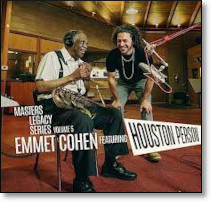
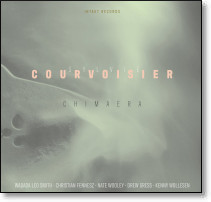
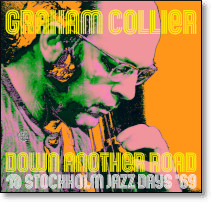
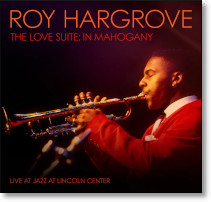
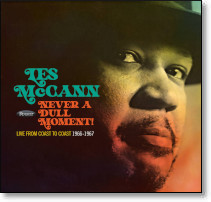
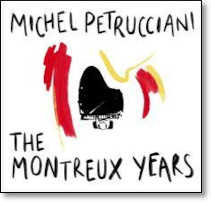
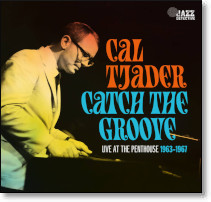
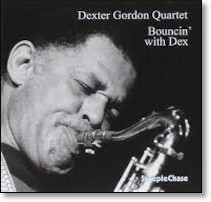
 |
 |
 |
 |
 |
 |
 |
 |
November archive (in progress).
Music: Current count 41210 [41160] rated (+50), 9 [22] unrated (-13).
Another Speaking of Which last night. I didn't have much time to work to search out stories, even less to annotate them, but did manage a couple hours for yet another iteration of my appropriately, I would say, simple-minded solution to the Israel's war on Gaza. It's just that simple: stop it. If you don't, you'll ultimately wind up inflicting so much self-damage you won't care how much hurt you inflicted on others.
Little chance of this being recognized by the people in power, who are so smitten by the notion that all their problems can be solved by force. They're wrong. But they are capable of doing immense harm in their flailing and thrashing.
On Wednesday, I sent out an initial round of 205 invitations to cast ballots in the 18th Annual Francis Davis Jazz Critics Poll. I've sent 15-20 more invitations out since then, and will send out a few more over the next week or two. Deadline is December 15. I'm pleased with the results so far, including 14 ballots submitted, and another 60 commitments to vote.
One of the perks of running the Poll is that I get tips on lots of new albums I hadn't heard (or in many cases even heard of). I add these to my tracking file (currently 1046 jazz albums, 1255 non-jazz). You can see a number of them already below, and I suspect that new ones will be most of what I listen to in the coming month. So far 182 records have received votes. I've added the ones I haven't heard (59 music albums + 10 old, so 38% of total) to my EOY Jazz List (scroll down to the 2% note).
Of course, there's also an EOY Non-Jazz List. I've done virtually no recent prospecting for non-jazz records, as I'm trying hard to finish off my 2023 promo queue, as well as keep up with jazz ballot picks. Consequently, it's lagged more than usual (especially more than last year). That will probably change if/when I start collecting EOY lists. At the moment, that seems like a really insane thing to contemplate, but I've described it as "my favorite waste of time," so if some time opens up, I'm more likely to waste it than I am to write some magnum opus on why US foreign policy is totally bankrupt. Let alone one on 2024 elections, as I've fallen into the 20% of Democrats who no longer smile on Biden. (If you doubt why, you obviously haven't been reading lately. Go back to yesterday's link to Biden's op-ed, which most likely his aides told him is today's match for JFK's "Ich bin ein Berliner" speech.)
Two new books under the "Recent Reading" widget. I enjoyed Christopher Clark's Revolutionary Spring so much I decided to read a bit more about 1848, something a bit more about the revolutions that didn't happen, hence China Miéville's book on The Communist Manifesto. It turned out to be more on the text, and less on the history, than I wanted, but still left me with warm and fuzzy feelings for my own flirtation with the red side. It also reminded me that not so long ago, no one could conceive of radical change -- something a great many saw urgent need for -- coming about without violence.
After Viet Thanh Nguyen got banned from the 92nd St. Y for signing a petition calling for a cease-fire in Gaza, I saw an interview with him, and got interested in his new memoir. Then I noticed Nothing Ever Dies: Vietnam and the Memory of War, and figured I should read that one first. Just started it, and I'm already finding things I'd like to share. I've written quite a bit about his subject -- not specifically on Vietnam, but you need only check my birth certificate to see that as the pivotal event in my life.
I ordered two more books. One, mentioned at the end of yesterday's post, is Norman Finkelstein's Gaza: An Inquest Into Its Martyrdom, which seems almost quaint now, given how much more devastating Israel's war against Gaza is now than the periodic assaults since 2006. However, as Nguyen should be among the first to point out, the extreme severity of the current genocide depends for its justification on forgetting everything that Israel did previously, lest the Oct. 7 revolt be viewed as anything other than unprovoked murderous frenzy.
The other book is the paperback reprint of Carlos Lozada's What Were We Thinking: A Brief Intellectual History of the Trump Era: a book of book reports, that looks like it might be a useful reference.
New records reviewed this week:
Jason Adasiewicz: Roscoe Village: The Music of Roscoe Mitchell (2023, Corbett vs. Dempsey): Vibraphonist, Chicago's go-to guy for the instrument since the early 2000s. He notes that "tuned metal percussion figures prominently in the sound universe of Roscoe Mitchell," so decided to give it a try with a solo album. Nice, but I don't quite get it. Nice piece of art on the album cover, too. B+(**) [bc]
Susan Alcorn/Septeto Del Sur: Canto (2023, Relative Pitch): Pedal steel guitarist, from Baltimore, debut 2000, Discogs credits her with 30 albums. She's joined here by a Chilean folk group, playing and improvising on her compositions, and singing a Victor Jara song to close. B+(**) [cd]
Maria Baptist Quintet: Essays on Jazz (2023, self-released, 2CD): German pianist, several albums since 2002, quintet with two saxophonists (Jan Von Klewitz and Richard Maegraith), bass, and drums, a rather rousing postbop group. Long: 108 minutes. B+(***) [sp]
John Bishop: Antwerp (2023, Origin): Drummer, from Seattle, runs this mainstream label, which did much to put Seattle in the jazz map, and has since branched out, especially to Chicago, Denver, and wherever UNT alumni gather, and here to Belgium, for a trio with Bram Weiters (piano) and Piet Verbist (bass) -- familiar names, especially if you've been on the label's mailing list. B+(**) [cd]
Brian Blade & the Fellowship Band: Kings Highway (2023, Stoner Hill): Drummer, called his 1998 Blue Note debut album Fellowship, which could be taken as the band name, one he's stuck with ever since. With original members Jon Cowherd (keyboards), Myron Walden (alto sax), Melvin Butler (tenor/soprano sax), and Christopher Thomas (bass), the only change Kurt Rosenwinkel taking over guitar (from Jeff Parker). B+(*) [sp]
BlankFor.Ms/Jason Moran/Marcus Gilmore: Refract (2022 [2023], Red Hook): Electronica producer Tyler Gilmore, has a couple previous albums, joined here by two well known jazz musicians, on piano and drums. The electronics help out, and the pianist is formidable, though it all slows down on the backstretch. B+(***) [sp]
Jane Bunnett and Maqueque: Playing With Fire (2023, True North/Linus Entertainment): Canadian soprano saxophonist, formed a bond with Cuban music early in her career (1992, Spirits of Havana), fourth album with this Cuban-Canadian group. I don't doubt the authenticity of the percussion, but I have trouble hearing the vocals as even jazz-adjacent. B+(*) [sp]
Emmet Cohen: Master Legacy Series Volume 5: Featuring Houston Person (2023, Bandstand): Pianist, has a few volumes from 2011 on featuring his own estimable work, along side this series, which started with Jimmy Cobb, Ron Carter, and Tootie Heath before moving on to the saxophonists, adding Benny Golson to the Heath volume, followed by George Coleman, and now Person -- who, by the way, sounds fabulous right out of the gate. With Yasushi Nakamura (bass) and Kyle Poole (drums). A- [sp]
Sylvie Courvoisier: Chimaera (2022 [2023], Intakt, 2CD): Swiss pianist, many albums since 1997, leads a sextet through a series of extended compositions, inspired by painter Odilon Redon ("a universe of symbolism, dreams and fantasy"). Group includes two trumpets (Wadada Leo Smith and Nate Wooley), Christian Fennesz (guitar/electronics), Drew Gress (bass), and Kenny Wollesen (drums/vibes). This would sit nicely in one of Smith's recent boxes. A- [sp]
Dry Thrust: The Less You Sleep (2020 [2023], Trost): Trio of Georg Graewe (organ), Martin Siewert (guitar, electronics), and Didi Kern (drums). Graewe is well known as an avant-pianist. The other have been kicking around the fringe since the late 1990s, with Kern's background mostly in noise-rock (but lately he's popped up with Gustafsson and Vandermark). Interesting but scattered: your basic organ trio improvising not on soul-groove but on no-wave noise. B+(*) [sp]
Antoine Drye With Strings: Retreat to Beauty (Oblation Vol. 3: Providence!) (2021 [2023], Cellar Music): Trumpet player, 2003 debut titled Oblation, so this has been slow coming. Strings just add some sweetener, setting up the voice at the end. B+(*) [sp]
George Freeman: The Good Life (2022 [2023], HighNote): Guitarist from Chicago, at 96 still the younger brother of saxophonist Von Freeman. Two sessions here, one with organ (Joey DeFrancesco, a couple months before he died) and drums (Lewis Nash), the other with bass (Christian McBride) and drums (Carl Allen). B+(**) [sp]
Eric Friedlander: She Sees (2023, Skipstone): Cellist, reconvenes his 2020 Sentinel band -- hard-edged guitarist Ava Mendoza and percussionist Diego Espinosa -- and adds electric bassist Stomu Takeishi. B+(*) [sp]
George Gee Swing Orchestra: Winter Wonderland (2023, self-released): Bandleader, formed his swing band in 1980, and a later 10-piece group called Jump, Jive & Wailers (after the Louis Prima song), but I'm not finding albums for either. (I have a 2007 release in my database.) Xmas music always brings out the bah humbug in me, and this did at first, but the brass section softened me up, then I loved their take on the merely Xmas-adjacent "Baby It's Cold Outside" (criss-crossing vocals by Hilary Gardner and John Dokes, not quite Armstrong and Fitzgerald but really great). I even found myself enjoying "The Christmas Song" after that (if not "O Tannenbaum" and "Jingle Bells"). B+(**) [cd]
Grupo Frontera: El Comienzo (2023, VHR Music): Mexican-American group from Edinburg, in the southern tip of Texas. First album. B+(**) [sp]
Gabriel Guerrero & Quantum: Equilibrio (2019 [2023], Origin): Pianist, born in Colombia, based in New York, website shows this as third album as leader vs. one side credit, Discogs has the split 0-5. Group here is mostly quartet, with sax (Seth Trachy), bass, and drums, with strings on one track and percussion on another, playing complex originals. B+(**) [cd]
David Ian: Vintage Christmas Trio Melody (2023, Prescott): Pianist, can't find him on Discogs but AAJ shows four previous albums: three Vintage Christmas titles, plus one for Valentine's Day. Trio with bass and drums. Best I can say for it is that mid-way I forgot that I was listening to Xmas music, but looking at the song list doesn't suggest why. B [cd]
I.P.A.: Grimsta (2022 [2023], Cuneiform): Norwegian group, fifth album since 2009: Atle Nymo (tenor sax/contrabass clarinet), Magnus Broo (trumpet), Mattias Ståhl (vibes/soprano sax), Ingebrigt Håker Flaten (bass), and Håkon Mjäset Johansen (drums). B+(**) [dl]
Val Jeanty/Candice Hoyes/Mimi Jones: Nite Bjuti (2021 [2023], Whirlwind): Most often title is given as group name, but the individuals (drums/electronics, vocals, bass) also appear on the cover. Jeanty is Haitian, mostly shows up adding electronic mojo to jazz artists (Kris Davis, Wallace Roney, Terri Lyne Carrington). Nice balance against the bass. Vocals could show up on trip-hop. B+(**) [sp]
Hannah Marks: Outsider, Outlier (2022 [2023], Out of Your Head): Bassist (electric & double), from Brooklyn, out on a jazz label but initially sounds more punk (Sarah Rossy singing), then arty, then Nathan Reising inserts a nice alto sax solo, then, well, I don't know. B+(*) [cd]
Sarah McKenzie: Without You (2023, Normandy Lane Music): Australian jazz singer, pianist, sixth album since 2011, wrote four songs here, the rest Brazilian standards, mostly Jobim. Done expertly, notably because the guitarist is Romero Lubambo. B+(*) [cd]
Hedvig Mollestad Weejuns: Weejuns (2022 [2023], Rune Grammofon): Norwegian guitarist, double live-album debut with new trio: Ståle Storløken (organ) and Ole Mofjell (drums). B+(***) [r]
Ivo Perelman/Matthew Shipp: Tryptych I (2022, SMP): Tenor sax and piano duo, relationship goes back at least to 1996, amounts to well over a dozen duo albums, and another dozen-plus trios. First of three more, all released on the same day. B+(***) [bc]
Ivo Perelman/Matthew Shipp: Tryptych II (2022, SMP): Original idea here was to put these duets together in a single "CD-LP-Cassette-Box-Set [which] was specifically recorded for three types of formats." My guess is that the 12-track, 55:42 Tryptych I was the CD, and that this 2-track 36:27 is the LP. Impossible for me to tell whether the music is the same or different, but it's easily equivalent. B+(**) [bc]
Ivo Perelman/Matthew Shipp: Tryptych III (2022, SMP): Reading the fine print more closely, I find that this ("Side A" and "Side B," 30:58) is the cassette version, "a contemplative set with a dramatic ambience." B+(***) [bc]
Jason Roebke: Four Spheres (2022 [2023], Corbett vs. Dempsey): Bassist, has played in many Chicago avant groups since 2000. Quartet here with Edward Wilkerson Jr. (tenor sax, alto clarinet), Mabel Kwan (piano), and Marcus Evans (drums), all (curiously enough) also credited with metronomes. B+(**) [bc]
Dave Sewelson/Stephen Moses/Jochem van Dijk/Steve Holtje: Orca Uprising (2023, MechaBenzaiten): Baritone saxophonist, long-time member of Microscopic Septet, with drums, electric bass, and keyboard. B [bc]
Russ Spiegel: Caribbean Blue (2023, Ruzztone Music): Guitarist, albums go back to 1985, has an organ-drums trio here, plus picks up some guests, including Brian Lynch (trumpet 4 of 10 tracks), Tim Armacost (tenor sax on 6, flute on 1), and Hendrik Meurkens (chromatic harmonica on 3). B+(**) [cd]
Trio Grande: Urban Myth (2023, Whirlwind): Will Vinson (alto sax, wurlitzer, synths), Gilad Hekselman (guitar), Nate Wood (drums, bass) -- the first two writing three and four pieces, with two covers (Roy Hargrove, Nik Kershaw). First cut points to some funk-fusion, but they're way too multi-faceted to stay there, especially when Vinson returns to his first calling. B+(**) [cd]
Trio San: Hibiki (2022 [2023], Jazzdor): Trio of Satoko Fujii (piano), Taiko Saito (vibes), and Yuko Oshima (drums), first for the trio, a live set from a festival in Berlin. Takes a bit to get going, and moves uneasily when it does, but impressive slow and somber, more so vibrant. B+(***) [cd]
Anna Webber/Matt Mitchell: Capacious Aeration (2023, Tzadik): Duo, tenor sax/flute and piano. High level, but sketchy. B+(**) [sp]
Mars Williams/Vasco Trilla: Critical Mass (2021 [2023], Not Two): Duo, reeds and toy instruments for Williams -- a Hal Russell disciple, Vandermark Five founder, acid jazz renegade, and author of several An Ayler Xmas volumes -- drums and percussion for Trilla. Some noise, some drone, some inspired jazz. B+(***) [sp]
Joe Wittman: Trio Works (2023, self-released): Guitarist, from New York, has a previous album, this one a trio with Daniel Duke (bass) and Keith Balla (drums), playing six originals and two covers ("Sweet Lorraine" and "Born to Be Blue"). Mainstream guitar groove, nicely done. B+(**) [cd]
Joe Wittman/Vito Dieterle/Jesse Breheney/Josh Davis: Night Out (2022 [2023], self-released): Guitarist's first album, out a few months before Trio Works, with tenor sax, bass, and drums. B+(*) [bc]
Miguel Zenón/Dan Tepfer: Internal Melodies (2023, Main Door Music): Alto sax and piano duo, the pianist from France, with an astrophysics degree, has a Goldberg Variations and a Twelve Free Improvisations in Twelve Keys, but is best known for his duos with Lee Konitz. No Latin Jazz for Zenón here. He's just very adroitly tuned into what the pianist is doing. B+(***) [sp]
Recent reissues, compilations, and vault discoveries:
Fred Anderson: The Milwaukee Tapes, Vol. 2 (1980 [2023], Corbett vs. Dempsey): Tenor saxophonist, born in Louisiana, moved to Chicago, helped found AACM, recorded a bit in the 1970s but mostly got by as the owner of a club, restarting his career when he turned 65 in 1994, most often working with his nephew, drummer Hamid Drake. John Corbett released the first volume of these tapes in 2000 as part of Atavistic's Unheard Music Series (virtually everything there is worth checking out), only now coming out with a second set. Quartet with Billie Brimfield (trumpet), Larry Hayrod (bass), and Drake (drums). B+(***) [bc]
Graham Collier: Down Another Road @ Stockholm Jazz Days '69 (1969 [2023], My Only Desire): Bassist (1937-2011), one of the major figures in British jazz to emerge in the late 1960s, leading a sextet here: Hary Beckett (trumpet/flugelhorn), Nick Evans (trombone), Stan Sulzmann (tenor/alto sax), Karl Jenkins (oboe/piano), and John Marshall (drums). This live set expands on five (of six) songs from his third album, Down Another Road. Remarkable compositions and performances. Clearly someone I need to research further. A- [sp]
Eric Ghost: Secret Sauce (1975 [2022], Jazz Room): Jazz flutist Eric Barth Sanders, released two albums 1974-75, had his career interupted by a jail sentence for manufacturing LSD, so his claim to "psychedelic" has some credence. With piano, bass, and free-ranging percussion. B+(***) [sp]
Milford Graves With Arthur Doyle & Hugh Glover: Children of the Forest (1976 [2023], Black Editions Archive): Previously unissued tapes from the percussionist's archive: a trio date with Doyle (tenor sax, flute) and Glover ("klaxon, percussion, vaccine"), a duo with Glover (tenor sax), and a bit of solo (3:13) to close. Graves is fascinating to focus on throughout. Whether you can largely depends on your tolerance for noise: Doyle has always been a screecher, and often little more, although he brings exceptional energy to his part here. Glover has similar intent, but is much less imposing. B+(***) [sp]
Roy Hargrove: The Love Suite: In Mahogany (1993 [2023], Blue Engine): Trumpet player (1969-2018), 1990 debut album was called Diamond in the Rough, led to him winning DownBeat's "rising star" 1991-93, and eventually (2021) entering their hall of fame. Jazz at Lincoln Center commissioned him to do this major piece in 1993, then sat on the tape 30 years? With Jesse Davis (alto sax), Ron Blake (tenor sax), Andre Hayward (trombone), Marc Cary (piano), Rodney Whitaker (bass), and Gregory Hutchinson (drums). Live, sounds great, even with the unconventional climax of scat vocal, long drum solo, and outro credits. Only explanation I can imagine why this was held back so long is that the boss man was jealous. A [sp]
Ahmad Jamal: Emerald City Nights: Live at the Penthouse 1966-1968 (1966-68 [2023], Jazz Detective/Elemental, 2CD): A third 2-CD set for the late pianist and his trio, with Jamil Nasser on bass and Frank Grant on drums. Dependably superb, as you'd expect. B+(***) [cd] [11-24]
Paul Lytton/Erhard Hirt: Borne on a Whim: Duets, 1981 (1981 [2023], Corbett vs. Dempsey): Duets, drums and live electronics for the famed British drummer, electric guitars and dobro for the German guitarist -- not someone I recalled, but Discogs credits him with 20 albums, and I recognize a couple. B+(**) [bc]
Les McCann: Never a Dull Moment! Live From Coast to Coast 1966-1967 (1963-67 [2023], Resonance, 3CD): Pianist, from Kentucky, never seemed to get much respect for his distinctive mix of soul jazz and boogie-woogie, but did get an actual hit record in 1969, with Eddie Harris on Swiss Movement (2.5 stars in Penguin Guide, but in my 1K list). This collects five live dates from Seattle (Penthouse) and one from New York (Village Vanguard), where he does his thing, and keeps doing it until he gets really good at it. (Looks like one cut from 1963 belies the subtitle.) A- [cd] [12-01]
Wes Montgomery/Wynton Kelly Trio: Maximum Swing: The Unissued 1965 Half Note Recordings (1965 [2023], Resonance, 2CD): For many years, it seemed like every American jazz guitarist took Wes Montgomery as their model -- a spell even more total than Charlie Parker and (later) John Coltrane held for saxophonists. I've long been skeptical (really for all three), but when Pat Metheny called Smokin' at the Half Note "the greatest jazz guitar album ever made," I had to check it out. I found it, "complete," in a 2-CD compilation, Impressions: The Verve Jazz Sides (probably where I got the Metheny quote), and have since collected CD reissues, the older one giving Wynton Kelly Trio top billing, a later one headlining Montgomery. Metheny's not right, but he's not far off base either: there is some truly remarkable guitar there -- Kelly and the rhythm section (Paul Chambers and Jimmy Cobb) are pretty great, too. What's offered here aren't outtakes from the same session, but snippets from other live shots from the same year and venue, with spoken intros and a revolving cast of bassists (Chambers, Ron Carter, Larry Ridley, Herman Wright, and Ridley again). There are, for sure, short stretches where Montgomery is on top of his game, and those are sublime. And there's a nice booklet, with a Bill Milkowski essays, and some appreciations from other musicians. This fits into Montgomery's discography rather like the Royal Roost broadcasts do for Parker. How indispensable they are is up to you. B+(***) [cd] [12-01]
Michel Petrucciani: The Montreux Years (1990-98 [2023], BMG/Montreux): The big jazz festival in Switzerland has been an annual affair since 1967. Dozens of artists have released tapes of their performances there, so it's unsurprising that the Foundation itself would want to get into the act. This draws on four performances by the diminuitive French pianist -- who died in 1999, at 37, of a congenital ailment that is impossible to detect in his masterful playing. Selections include duos with bassist Miroslav Vitous, a quartet with synthesizer, a quintet with Steve Grossman on sax, and a sextet with Stefano Di Battista. This winds up being an excellent sampler. A- [sp]
Cal Tjader: Catch the Groove: Live at the Penthouse 1963-1967 (1963-67 [2023], Jazz Detective/Elemental, 2CD): Vibraphonist (1925-82), parents were "Swedish American vaudevillians," moved to Bay Area when he was two, learned to play piano and drums, and tap dance, started out in Dixieland bands, was playing drums in Dave Brubeck's group when he got interested in vibes. There are many testimonials in the booklet here, including one by Terry Gibbs on this story, and how Gibbs "showed him some things," although his knack for "Latin kick" came elsewhere. Tjader's groups from 1953 on were widely recorded. At one point, I tried figuring out who had the most jazz albums among artists I had none from, and Tjader was the easy winner. I picked up a record with Stan Getz after that, but Tjader remains a gaping hole in my expertise. So unlike most recent live archival trawls, I have little to compare this with, giving it an air of fresh discovery. This collects six sets, all quintets with piano, bass, drums, and Latin percussion (especially congas), and it's quite delightful. A- [cd]
Old music:
Dexter Gordon Quartet: Bouncin' With Dex (1975 [1976], SteepleChase): One of many albums the tenor saxophonist recorded during his years in Copenhagen. First side starts with "Billie's Bounce" and ends with a Gordon original called "Benji's Bounce," with "Easy Living" in between, another Gordon piece and "Four" on the other side. Quartet is the cream of Copenhagen: Tele Montoliu (piano), NHØP (bass), and Billy Higgins (drums). A- [r]
Dexter Gordon Quartet: Stable Mabel (1975, SteepleChase): With Horace Parlan (piano), NHØP (bass), and Tony Inzalaco (drums), six standards, ranging from "In a Sentimental Mood" to "Red Cross," most stretched out to 8-9 minutes. B+(***) [r]
Dexter Gordon Quartet: Cheese Cake (1964 [1979], SteepleChase): A live radio shot from his early days in Copenhagen, with Tele Montoliu (piano), NHØP (bass), and Alex Riel (drums). Short and sweet. B+(**) [r]
Dexter Gordon Quartet: I Want More (1964 [1980], SteepleChase): Another live radio shot from Jazzhus Montmartre in Copenhagen, again with Montoliu and NHØP, this time with Rune Carlsson on drums. This was a prime period for him, and nearly everything sounds great. B+(***) [r]
Unpacking: Found in the mail last week: